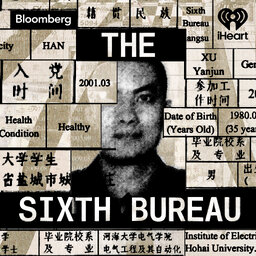Earwitness: The Toforest Johnson Case, with Beth Shelburne
One July night in 1995, Deputy Sheriff William G. Hardy was shot behind the Crown Sterling Suites hotel in Birmingham, Alabama. While law enforcement had almost nothing to go on, prosecutors used shaky earwitness testimony to convict Toforest Johnson of the crime. Despite repeated appeals from multiple legal experts, he remains on death row to this day. In tonight's interview, award-winning journalist Beth Shelburne discusses how her new podcast Earwitness explores the ins and outs of this profoundly disturbing case -- and what it tells us about the US justice system.
In 1 playlist(s)
Stuff They Don't Want You To Know
From UFOs to psychic powers and government conspiracies, history is riddled with unexplained events.…Social links
Follow podcast
Recent clips

Introducing: The Sixth Bureau
00:58

What is AI Psychosis?
1:23:50

Listener Mail: Lasers, Barack Obama on Aliens, and More
1:00:09
 Stuff They Don't Want You To Know
Stuff They Don't Want You To Know